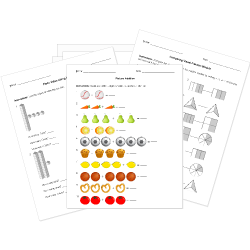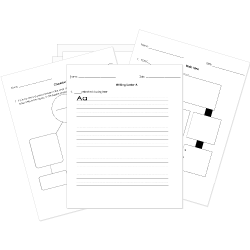Common Core Standard 7.SP.C.6 Questions
Approximate the probability of a chance event by collecting data on the chance process that produces it and observing its long-run relative frequency, and predict the approximate relative frequency given the probability. For example, when rolling a number cube 600 times, predict that a 3 or 6 would be rolled roughly 200 times, but probably not exactly 200 times.
You can create printable tests and worksheets from these questions on Common Core standard 7.SP.C.6! Select one or more questions using the checkboxes above each question. Then click the add selected questions to a test button before moving to another page.







